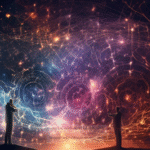Can Psychic Abilities Be Scientifically Verified, and What Does Research Reveal?
Can Psychic Abilities Be Scientifically Verified, and What Does Research Reveal?
The question of whether psychic abilities exist has captivated humanity for centuries, stirring debate among skeptics and believers alike. As society advances in technology and understanding of the human mind, the possibilities of verifying such extraordinary claims become more intriguing. This post delves into the scientific attempts to validate psychic phenomena, exploring documented cases, historical context, and ongoing research. Understanding this topic not only demystifies psychic abilities but also poses questions about the boundaries of human consciousness and perception.
Historical Context of Psychic Research
The exploration of psychic abilities, often referred to as parapsychology, has roots dating back to the late 19th century. During this period, interest in spiritualism surged, with mediums claiming to communicate with the dead. Notable figures like Sigmund Freud and Carl Jung even entertained the idea that the subconscious might harbor unexplained abilities.
In 1882, the Society for Psychical Research (SPR) was established in London, marking the formal investigation into psychic phenomena. Researchers such as Sir William Crookes and later Joseph B. Rhine conducted experiments aimed at measuring telepathy, clairvoyance, and psychokinesis. Despite these early efforts, skepticism prevailed, leading to a divide between scientific inquiry and anecdotal evidence.
Core Concepts of Psychic Abilities
Psychic abilities encompass a range of phenomena, including:
- Telepathy: The ability to transmit thoughts or emotions between individuals without using known human senses.
- Clairvoyance: Gaining information about an object, person, or event through extrasensory perception.
- Precognition: The capacity to perceive future events.
- Psychokinesis: The ability to manipulate objects with the mind.
Understanding these core concepts helps frame research efforts, as each phenomenon requires different methodologies for investigation. The challenge lies in creating controlled environments that eliminate chance and fraud, which are critical in substantiating claims of psychic abilities.
Documented Cases of Psychic Phenomena
Throughout history, there have been several documented cases that challenge conventional understanding of human capabilities. One such case involves the renowned psychic, Edgar Cayce, who, while in a trance state, provided detailed medical diagnoses and treatments for individuals he had never met. His accuracy and the subsequent healing of patients remain subjects of fascination and study.
Edgar Cayce provided over 14,000 documented readings, many of which are still referenced in holistic healing practices today.
Another compelling example is the work of physicist Dr. Dean Radin, who has conducted numerous experiments on telepathy and precognition. His studies often involve random number generators and participants guessing outcomes, leading to results that sometimes statistically exceed chance. Radin’s work suggests that anomalous cognition may be real but remains controversial within the scientific community.
Scientific Testing of Psychic Abilities
Scientific scrutiny of psychic abilities often employs rigorous testing methods to eliminate bias and fraud. One notable approach is the Ganzfeld experiment, designed to test telepathy. In this setup, a “sender” attempts to transmit information to a “receiver” in a soundproof, visually homogenous environment.
Results from multiple Ganzfeld studies suggest that participants can perform above chance levels, indicating potential telepathic abilities. However, critics argue that methodological flaws and statistical anomalies could skew results. The debate continues as researchers strive to refine their methods and address skepticism.
Alternative Perspectives on Psychic Research
While many scientists remain skeptical about psychic phenomena, alternative perspectives argue that limitations in scientific paradigms may hinder understanding. Proponents of parapsychology often cite quantum mechanics, suggesting that consciousness may play a more significant role in reality than currently understood. This perspective posits that psychic abilities could be manifestations of consciousness interacting with the physical world in ways science has yet to fully comprehend.
Moreover, cultural beliefs and spiritual practices worldwide often incorporate elements of psychic abilities, leading to a rich tapestry of anecdotal evidence. These perspectives challenge the binary view of skepticism versus belief, suggesting that our understanding of the mind and universe is still evolving.
Common Misconceptions and Clarifications
Despite the growing interest in psychic phenomena, several misconceptions persist. One common myth is that all psychics are frauds. While some may exploit the desire for answers, many individuals report genuine experiences that defy explanation. It is crucial to differentiate between charlatans and those who genuinely seek to understand their abilities.
Fact: Many individuals report genuine experiences with psychic phenomena that remain unexplained by science.
Another misconception is that psychic abilities are rare or limited to a select few. Research indicates that many individuals may possess latent abilities that can be developed with practice and training. Programs in intuitive development and psychic training exist, suggesting that heightened awareness and sensitivity can be cultivated.
Practical Implications of Psychic Research
The implications of validating psychic abilities extend beyond curiosity; they could influence various fields, including psychology, medicine, and even law enforcement. For instance, understanding how intuition works could enhance therapeutic practices, allowing practitioners to tap into their clients’ emotional states more effectively.
In law enforcement, psychics have occasionally been consulted in cases involving missing persons or unsolved crimes, leading to breakthroughs that defy conventional investigative techniques. While results vary, the potential to incorporate such insights into traditional methods presents exciting possibilities.
Best Practices for Investigating Psychic Phenomena
For those interested in exploring psychic abilities, a systematic approach is essential. Here are some best practices:
- Maintain Skepticism: Approach claims with a critical mind, seeking verifiable evidence.
- Document Everything: Keep detailed records of experiences, dates, and outcomes to analyze patterns over time.
- Engage in Controlled Experiments: If possible, involve others in structured tests to eliminate bias and subjectivity.
- Learn from Experts: Seek guidance from reputable figures in the field to gain insight and knowledge.
Future Developments and Ongoing Research
The future of psychic research is promising, with advancements in neuroscience and quantum physics offering new avenues for exploration. Studies in brainwave patterns during psychic experiences could provide insights into how the mind processes information beyond conventional senses.
Furthermore, the integration of technology, such as brain imaging and biofeedback, could enable researchers to quantify psychic experiences in more objective ways. As societal openness to alternative modalities grows, the potential for collaboration between traditional science and parapsychology could yield groundbreaking discoveries.
Conclusion
The question of whether psychic abilities can be scientifically verified remains a complex and multifaceted issue. While documented cases and experimental research suggest the potential for such phenomena, skepticism and alternative explanations continue to challenge our understanding. As science progresses and our perspectives evolve, the exploration of psychic abilities may uncover new dimensions of consciousness that bridge the gap between the known and the unknown. Ultimately, the pursuit of knowledge in this realm invites us to rethink the limits of human potential and the mysteries of our existence.
Other Articles
Recent Posts
- What Happened to Flight MH370? The Conspiracy Theories That Still Haunt Us
- What Secrets Lurk Within the Walls of the Infamous Trans-Allegheny Lunatic Asylum?
- What Evidence Supports the Existence of Bigfoot in the Pacific Northwest?
- What Happened to the Indus Valley Civilization? Unraveling the Mysteries of Ancient Urban Life
- Can Telepathy Be Scientifically Proven Through Laboratory Evidence?







